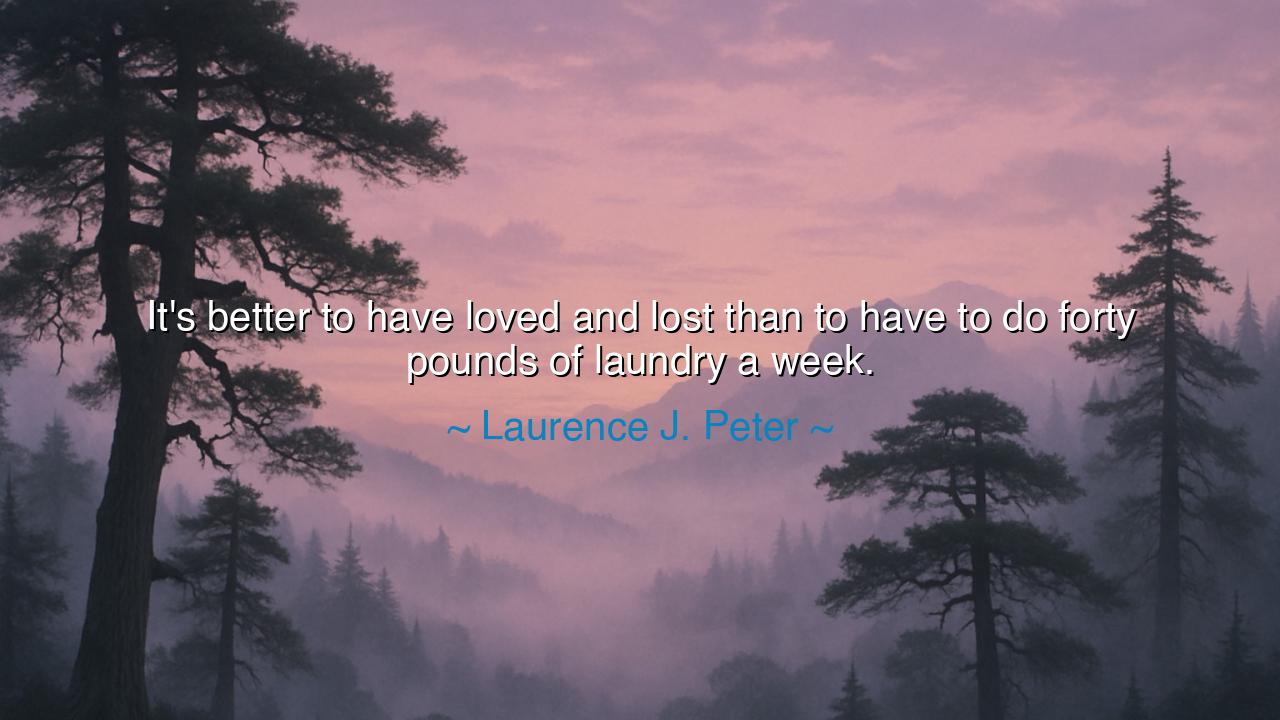
It's better to have loved and lost than to have to do forty






Hearken, children of the ages, to the words of Laurence J. Peter, the sage of humor and human experience: "It's better to have loved and lost than to have to do forty pounds of laundry a week." Here lies a teaching of perspective, levity, and the subtle burdens that accompany domestic life. Peter reminds us that the trials of love, though sometimes painful, are lighter in spirit than the endless toil of mundane labor.
Know that in these words there is both wit and wisdom. To love is to open the heart, to risk pain, and to embrace joy with courage. Even if lost, the experience of love enriches the soul far more than the monotony of repetitive work, such as washing the weekly heap of laundry. The ancients would counsel that the burdens of the heart, though often profound, are gifts that shape character, whereas toil without purpose weighs heavily upon the spirit.
Yet, consider also the interplay of labor and longing. Peter’s jest reminds us that human endeavor comes in many forms—some noble, some mundane. Laundry represents the small, persistent demands of life, necessary yet often soul-draining. In comparison, love, even when fleeting or sorrowful, brings vitality, reflection, and growth. The wise would discern that the joys of the heart outweigh the mechanical demands of the day.
And behold, there is heroism in embracing emotion. To love, knowing the risk of loss, is to choose richness over ease, experience over indifference. Laurence J. Peter teaches that life’s highest rewards often come with cost, yet these are treasures the heart cannot wash away. Even loss carries lessons, depth, and the memory of connection that domestic toil cannot replicate.
Thus, remember, future generations: measure the value of experience not only in effort or duty, but in the richness of feeling and connection. To have loved is to have engaged fully with life, to have risked, felt, and grown, far beyond the repetitive burdens of laundry or other trivial labors.
In the end, the ancients would say: cherish the heart’s adventures, even when they end in sorrow. For it is better to embrace the brilliance of love, to open the spirit fully, and to learn its lessons, than to live a life weighed down solely by the endless cycles of mundane labor.






AAdministratorAdministrator
Welcome, honored guests. Please leave a comment, we will respond soon